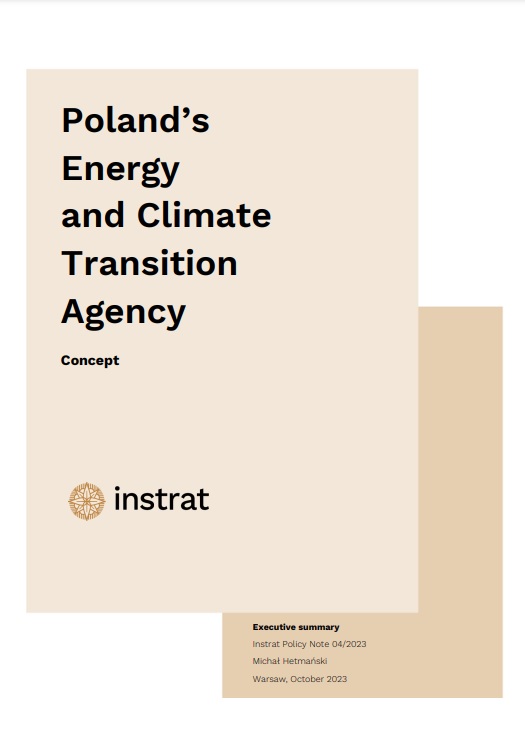Key findings
- The newly formed government should strengthen the institutional capacity of the energy transition planning process. Increasing level of climate ambition and years of delays in the energy transition and the implementation of EU legislation require a smooth catch-up. This should be done at the central level as a coordinated effort.
- Instrat is recommending the establishment of Poland’s Energy and Climate Transition Agency. The agency would serve as a government think tank, an institution to support decision making processes by providing data and research. It would also serve as a platform for coordinating public policies between different levels of government. It would thus prevent siloed actions or the implementation of internally conflicting visions. It could be the Polish equivalent of international organizations with this profile, such as the IEA or IRENA, or Denmark’s Energistyrelsen and Germany’s dena.
- We refer to the call of the representatives of the Civic Coalition, who announced the establishment of a new organisation to coordinate the work of various ministries responsible for the energy transition.
- The Agency’s mission should be to feed decision-makers with expert knowledge about possible transformation pathways towards zero-carbon future in the Polish energy sector and economy. Key recipients of its work would be organizations involved in the transition:
- at the political level – partners of the ruling coalition, opposition representatives, EU institutions,
- at the technical level – ministries responsible for key government departments, including energy, climate, environment, economy, state assets, mineral deposit management, and other institutions, such as Polish TSO (PSE), energy regulator (URE), NFOŚiGW and Statistics Poland,
- non-governmental stakeholders – civil society, trade unions, the private sector, industry associations.
- The agency should function as a separate and independent government think tank from other ministries, reporting directly to the Prime Minister. It should take over and, over time, develop selected tasks and competencies relating to transition planning and monitoring carried out to date by ministries or entities supervised by them. The agency’s list of tasks should include:
- Conducting public statistics research, running an open access data portal on the energy transition and providing market intelligence,
- Modeling pathways for reducing greenhouse gas emissions and transforming the energy sector,
- Supporting legislative and negotiation processes.
- The establishment and operation of the Agency will be subject to a number of risks. These include:
- lack of confidence in the Agency’s mission and the results of its work,
- unfulfilled expectations of the new entity’s dynamic role due to bureaucratic and financial constraints,
- excessive centralization of tasks,
- influence of interest groups.


